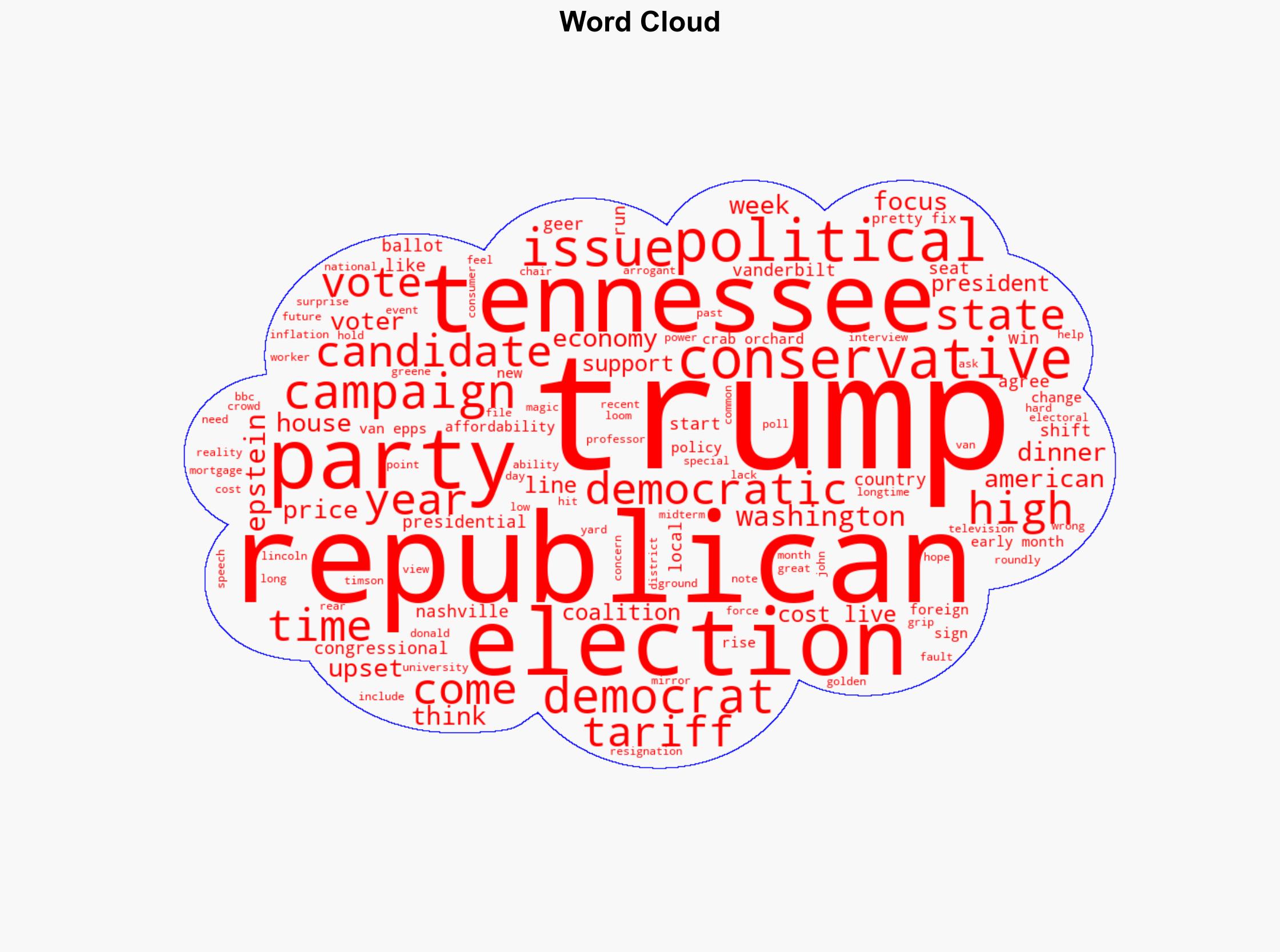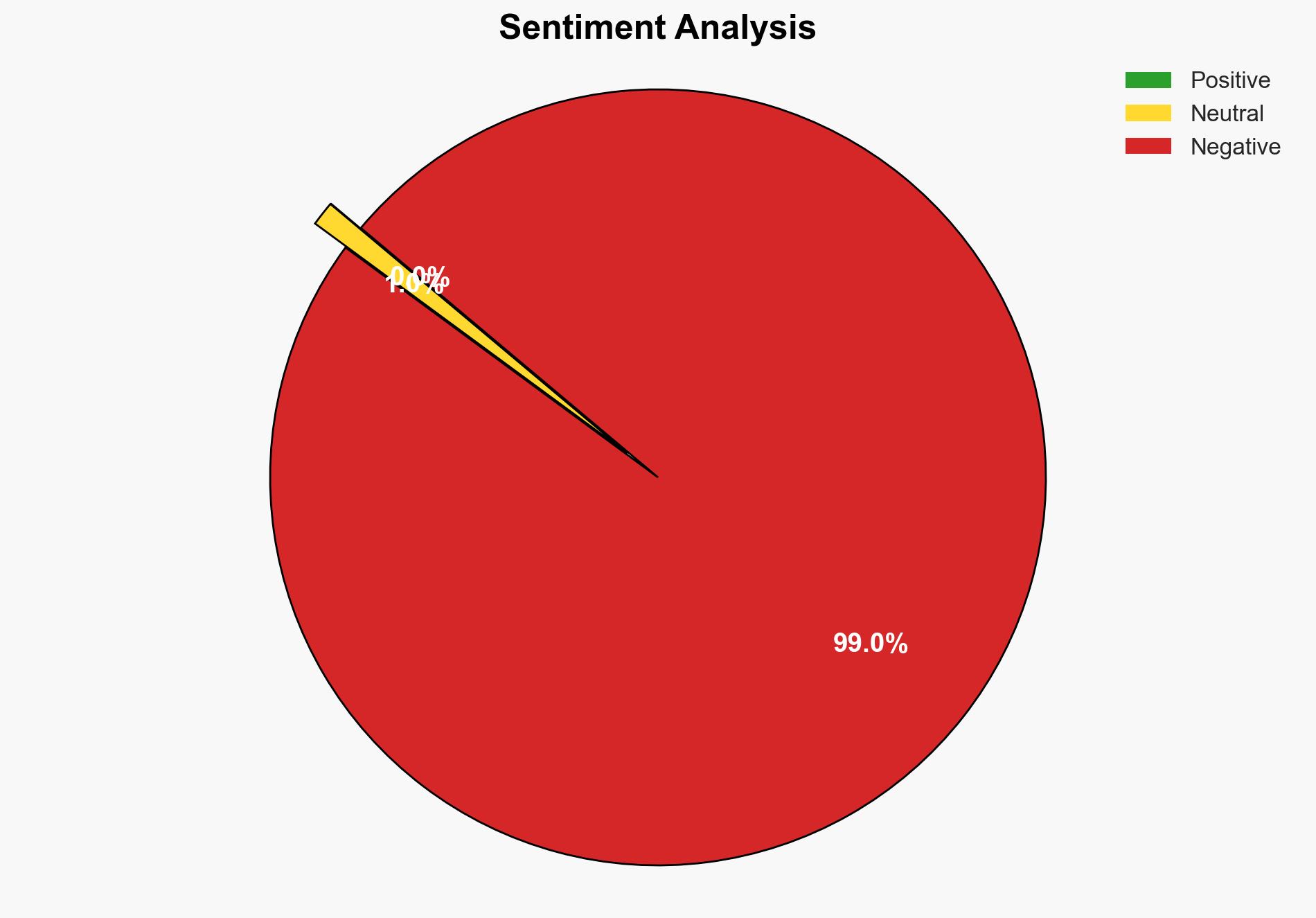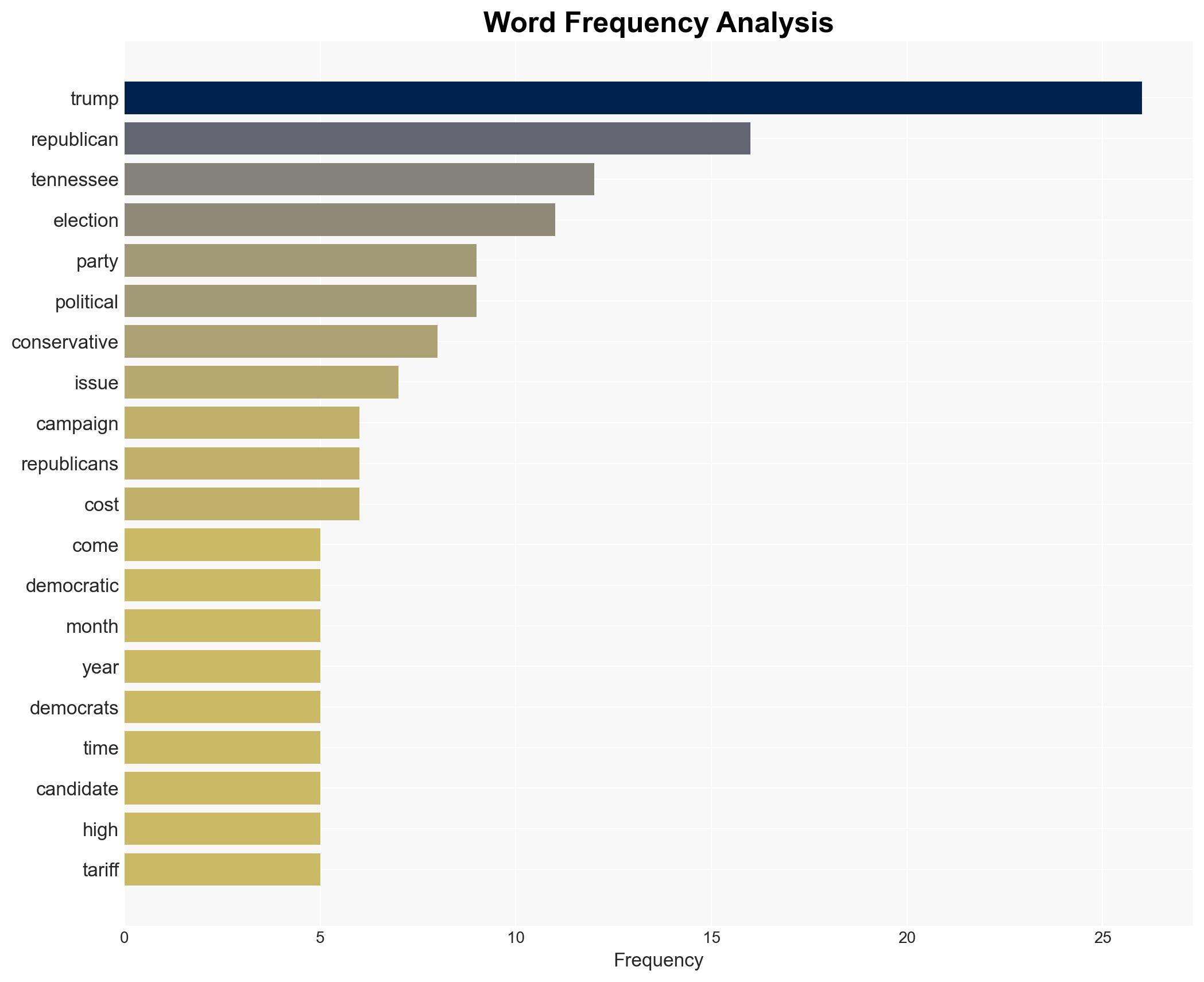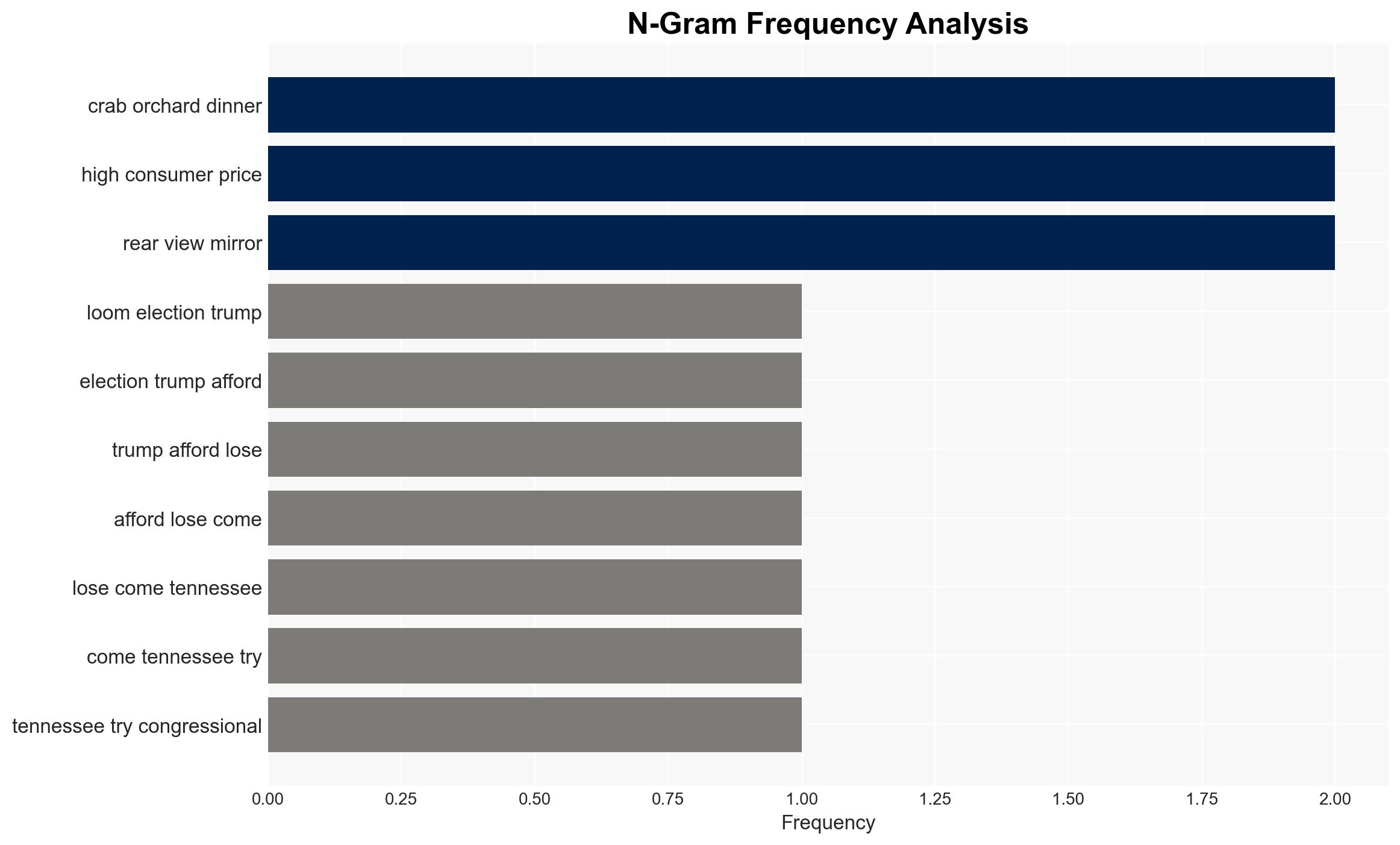Trump Faces Critical Election Challenge in Tennessee as Democrats Aim for Upset
Published on: 2025-11-26
AI-powered OSINT brief from verified open sources. Automated NLP signal extraction with human verification. See our Methodology and Why WorldWideWatchers.
Intelligence Report:
1. BLUF (Bottom Line Up Front)
The most supported hypothesis is that the upcoming election in Tennessee represents a critical juncture for the Republican Party, potentially indicating a shift in political dynamics that could weaken Donald Trump’s influence within the party. Confidence level: Moderate. Recommended action includes monitoring shifts in voter sentiment and preparing strategic adjustments to address economic concerns that are resonating with the electorate.
2. Competing Hypotheses
Hypothesis 1: The Tennessee election is a bellwether for a broader political shift away from Trump within the Republican Party, driven by economic dissatisfaction and changing voter priorities.
Hypothesis 2: The election is an isolated event with limited implications for Trump’s influence, as the Republican base remains largely supportive despite economic grievances.
Hypothesis 1 is more likely due to the convergence of economic issues, recent polling data indicating dissatisfaction, and the active engagement of Democratic resources in a traditionally conservative area.
3. Key Assumptions and Red Flags
Assumptions include the reliability of polling data and the assumption that economic issues will outweigh other factors in voter decision-making. Red flags include potential bias in interpreting polling data and the risk of underestimating Trump’s resilience among core supporters. Deception indicators could involve strategic misinformation campaigns aimed at swaying public perception.
4. Implications and Strategic Risks
If Hypothesis 1 holds true, there could be significant implications for the Republican Party’s strategy and leadership dynamics, potentially leading to internal conflicts and a reevaluation of policy priorities. Economically, a shift in voter sentiment could influence legislative agendas and impact financial markets sensitive to political stability. Information campaigns may intensify, increasing the risk of misinformation and cyber threats targeting electoral processes.
5. Recommendations and Outlook
- Monitor voter sentiment and economic indicators closely to anticipate shifts in political dynamics.
- Engage in strategic communication to address economic concerns and reinforce party unity.
- Best-case scenario: The Republican Party adapts to changing voter priorities, maintaining its influence.
- Worst-case scenario: Internal divisions weaken party cohesion, leading to electoral losses.
- Most-likely scenario: Incremental shifts in political dynamics necessitate strategic adjustments but do not immediately threaten Trump’s influence.
6. Key Individuals and Entities
Donald Trump, Scott Golden, Kamala Harris, Marjorie Taylor Greene, John Geer.
7. Thematic Tags
Regional Focus, Regional Focus: Tennessee, Republican Party, Economic Issues, Voter Sentiment
Structured Analytic Techniques Applied
- Causal Layered Analysis (CLA): Analyze events across surface happenings, systems, worldviews, and myths.
- Cross-Impact Simulation: Model ripple effects across neighboring states, conflicts, or economic dependencies.
- Scenario Generation: Explore divergent futures under varying assumptions to identify plausible paths.
Explore more:
Regional Focus Briefs ·
Daily Summary ·
Support us





